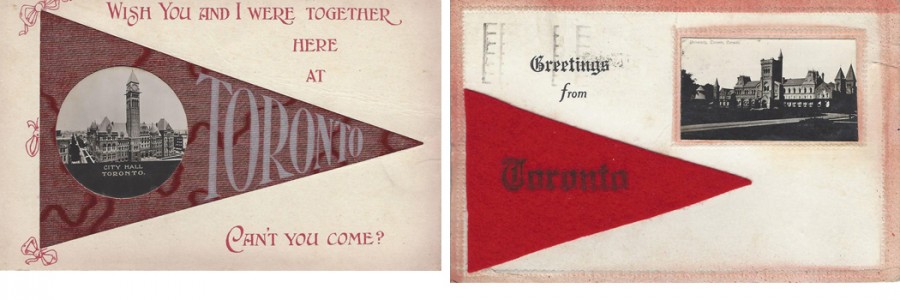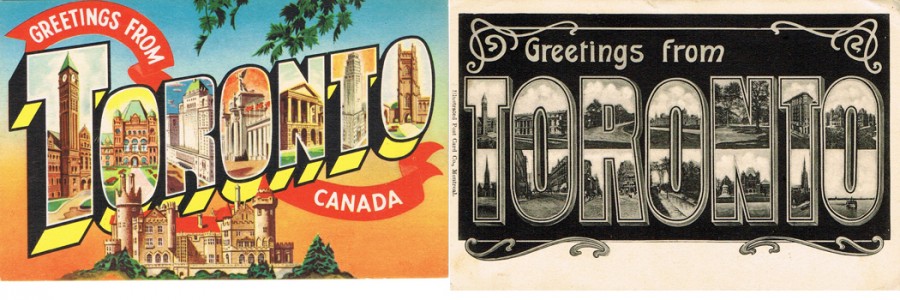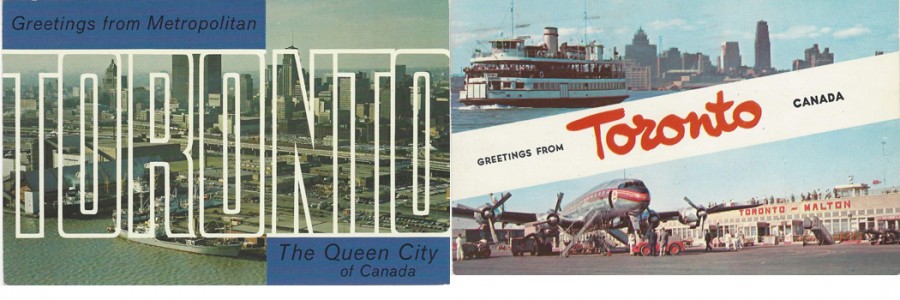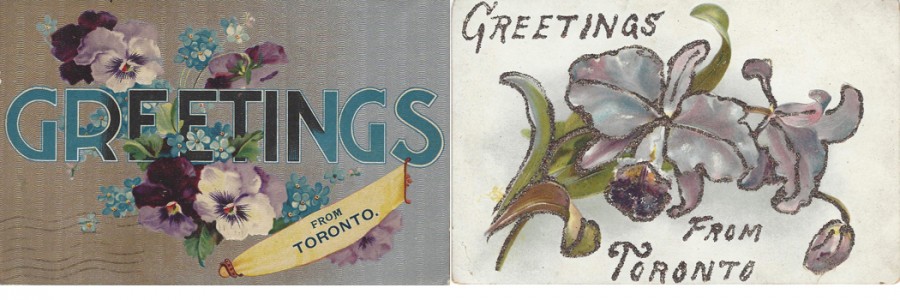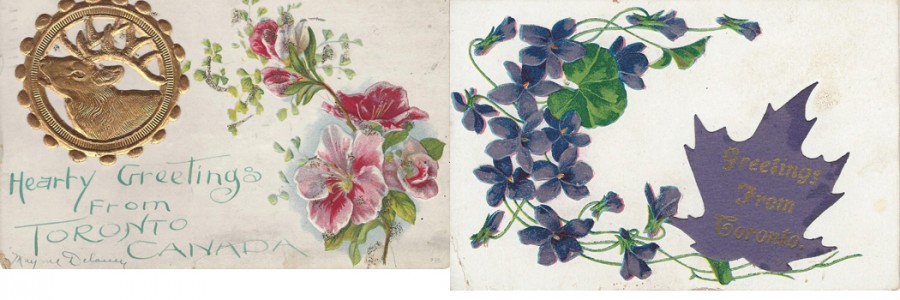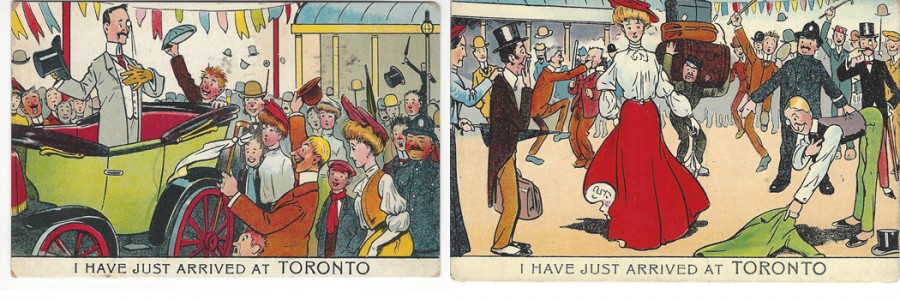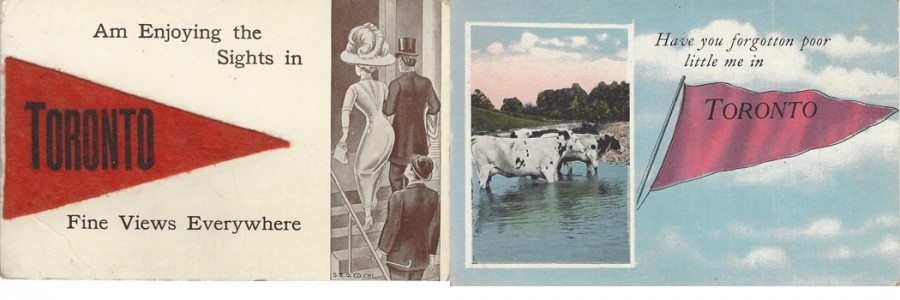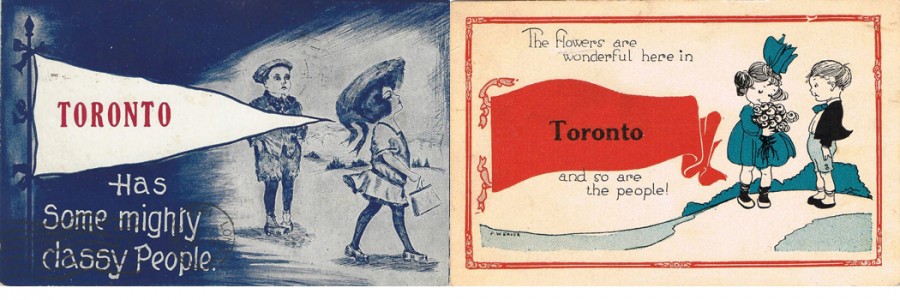An association of over 250 dedicated deltiologists, we are admirers and collectors of vintage postcards. While our home base is in Toronto, Ontario, Canada our membership hails from all across Canada, with others from the United States.
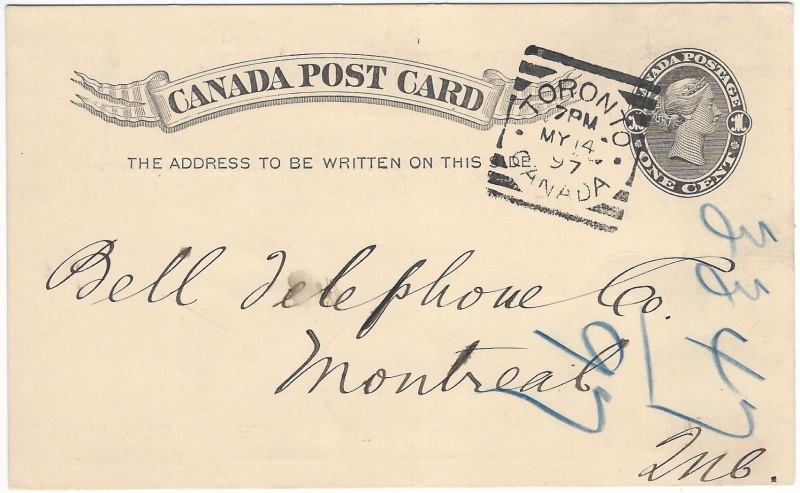
1897 Canada Post Card
Created over 150 years ago in 1869, and taking on its familiar “modern” form (image on one side, message/address on the other) around 1900, the postcard was a quick, new way to communicate. Cameras, photography and photo processing were new, expensive and not yet adapted for use by laypersons. Long distance telecommunications were not readily available. Mail service, however, was timely and in many communities occurred twice a day. Postcards cost just a penny and needed a 1¢ stamp for domestic mail, a 2¢ stamp to send internationally. In the “Golden Age” of postcards, globally, beginning about 1902 through World War I, the number of postcards collected and exchanged was in the many hundreds of millions, if not billions. In Canada alone, tens of millions of postcards were being purchased, collected and/or posted annually. Postcards were the “social media” of the times!
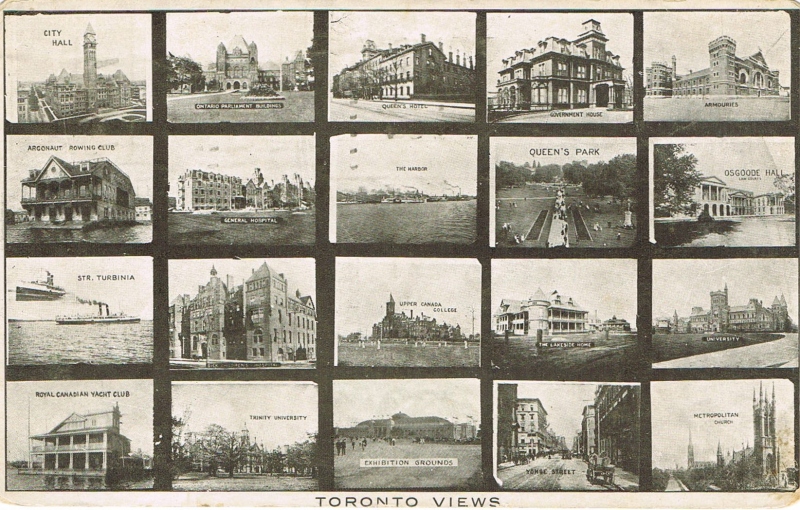
The Toronto Postcard Club was founded in 1977 when ten postcard-collecting enthusiasts began to meet in Agincourt, in what was then the Borough of Scarborough. Since those early days, the club’s contribution to deltiology in Canada has been significant. Beginning in 1980, our magazine Card Talk has featured hundreds of articles on postcard topics, with back issues now available in the “members only” section of this website. Also, for well over 40 years, the Club has hosted an ANNUAL SHOW and SALE where members and dealers meet to buy, sell, and trade vintage postcards.
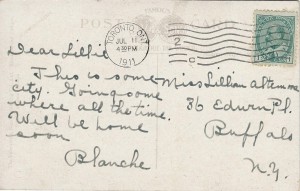 Why do we collect vintage postcards? Because they are fascinating artifacts and pieces of art providing what are often unique glimpses into over 100 years of Canadian and world history – from mundane and personal moments right up to the most momentous social and political events. Aspects of postal history, social history, early photography and the history of printing methods intrigue the postcard collector. From the postcard “Golden Age” to the modern age, postcards have evolved to reflect changes in print and photography methods, and social practices. When we refer to photography, we include the vast numbers of “real photo postcards” (RPPCs) that are actual photographs, often of stunning quality and depicting rarely-seen places and events, that were produced explicitly for use as postcards.
Why do we collect vintage postcards? Because they are fascinating artifacts and pieces of art providing what are often unique glimpses into over 100 years of Canadian and world history – from mundane and personal moments right up to the most momentous social and political events. Aspects of postal history, social history, early photography and the history of printing methods intrigue the postcard collector. From the postcard “Golden Age” to the modern age, postcards have evolved to reflect changes in print and photography methods, and social practices. When we refer to photography, we include the vast numbers of “real photo postcards” (RPPCs) that are actual photographs, often of stunning quality and depicting rarely-seen places and events, that were produced explicitly for use as postcards.
Many of us tend to gravitate to postcards that have a connection to our lives: home towns, occupations, sports, genealogy, places we’ve visited or other interests that we have (e.g. the history of the military, railroads, movies or fashion). There are postcards of virtually every town, village and hamlet in Canada, of military events such as World Wars I and II, sports and leisure, domestic life, agriculture, automobiles, aircraft, religion, business and industry, disasters, politics, labour, the North, the opening of Canada’s West, Indigenous life and almost anything else you can think of. We study the different eras of postcards, the different kinds of postcards, the impacts of international postal regulations, early Canadian photographers and publishers, and more. The message side is often an exquisite example of cursive writing. The Internet has made in-depth research into the stories of individual postcards, their producers and their users possible in a way that it never was previously.
JOIN THE TORONTO POSTCARD CLUB!
It’s not just a Toronto thing! Members with interests in all parts of Canada, the U.S. and the world are part of our club. We regularly interact with other Canadian and U.S. postcard clubs as well, all of which expands our knowledge – of postcards themselves and of the things they depict. Become a member and/or attend one of our ZOOM meetings as a guest. Or go to a postcard show to see for yourself why postcard collecting is such a compelling hobby.
All material on this website is copyright of the Toronto Postcard Club or of the original authors. Reproduction without the express written permission of the copyright holder is prohibited. No endorsement of the content of linked websites is intended.

